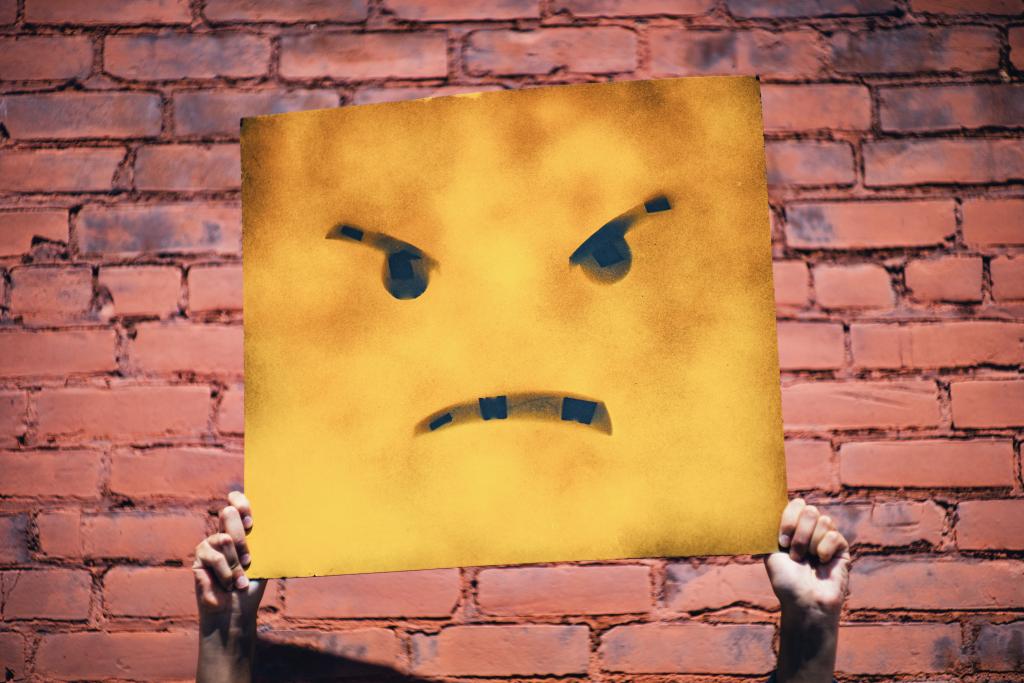Remember the internet of the late ’90s and early 2000s? Before Facebook, before Twitter?
Back then I was in my late teens and early twenties; and I had developed a case of militant atheism.
It wasn’t pretty.
For the most part, my life looked normal. But once I stepped inside an internet chatroom: look out. 
As a relatively newly converted atheist, I was ready to take on the power structures that had oppressed my people for centuries.
It turns out, I was also facing what I would later find out was clinical depression. So I was unhappy. But, as an atheist, I thought perhaps that unhappiness was due to historical oppression from Christians.
So I, often with some friends, burst into chatrooms with Christians to tell them all how wrong they were about things; to challenge them, to disrupt their cozy afternoons. We would test their knowledge of religious history, insult them a bit here and there if they didn’t respond, and play the victim if they met our rudeness with their own.
We maybe thought we were doing the world a favor. And we were right – facts checked – or were “only asking questions.”
But eventually it became clear: we were being jerks.
Social Media in an age of Trump
I’m not sure if the mid-Bush to late-Obama years saw an actual decrease in online jerky behavior, or if my Buddhist practice, grad school, and travels just took my mind elsewhere. But it seems to have returned in full force.
Earlier this month, Zaid Jilani and Jeremy Adam Smith wrote for UC Berkeley’s Greater Good blog on What’s Driving Political Violence in America? They cite a paper by Lilliana Mason and Nathan Kalmoe called “Lethal Mass Partisanship,” writing:
With data from two different national surveys, they found that 24 percent of Republicans and 17 percent of Democrats believe that it is occasionally acceptable to send threatening messages to public officials. Fifteen percent of Republicans and 20 percent of Democrats agree that the country would be better if large numbers of opposing partisans in the public today “just died,” which the authors call a “shockingly brutal sentiment.” Nine percent of both Democrats and Republicans agree that violence would be acceptable if their opponents won the 2020 presidential election.
And, perhaps surprisingly to many, they found that “Demographic categories such as gender, age, and education didn’t matter. Contrary to what some liberals might expect, in these surveys positive feelings towards President Trump didn’t predict more violent attitudes.”
Over-Identification
One key trait that united violent attitudes was strong identification with a party. As people make their party more and more a factor of their identity, they become more deeply embedded in ‘othering’ those on the outside.
This helps explain my fervor as a new atheist. It became who I was.
It also explains one of the reasons for my falling out: constant in-fighting. As my friends and I fell down the rabbit-hole of deeply identifying with our positions, we found differences in one another intolerable. Agnostics, once on our side, were cast out as failures. Anyone espousing anything remotely “spiritual” was subject to quick attack. And then there were those who suggested, “hey, maybe we’re going too far here?” and were similarly told off.
On the philosophy blog Daily Nous, Justin Weinberg wrote last month about a number of philosophers stepping off of twitter due to the declining level of discourse there. He cites the words of Kate Manne of Cornell who writes, “I will deactivate my twitter account shortly. Thank you so much to all of you who keep fighting. I just can’t anymore.”
Similarly, Brian Earp of Yale/Oxford writes, “Folks, I think I’ll step away from twitter for a while. The norms of accepted discourse even among academics seem to allow for a degree of meanspiritedness, mockery, point scoring, snideness, etc it’s taken its toll. I’ve met a lot of really kind people on here. Wish you all well”.
And this brings us back to today, where I’ve seen a relatively sharp rise in netizen nastiness. Not only toward the ‘other side’ but also a fair amount of intense internal fighting. Many friends have written or talked about just leaving social media altogether.
Right Speech: Compassionate Social Media Use
Others are seeking ways to nudge the ‘system’ in a compassionate direction. Here are three suggestions:
Number One: rules of engagement
This comes from Justin Weinberg’s article:
- First, in almost all of these contexts, you owe no one a reply (or further engagement). So if you decide not to reply to someone because you don’t like their attitude, or you don’t think it would be a good use of time, or whatever, your decision is not in need of justification.
- Second, it’s okay to not “win” online debates. Philosophers should already be comfortable with this but for some reason—perhaps because it seems more public—they are less comfortable with it in the context of social media. Remember that “I’ll think about that” is a perfectly fine response.
- Third, try not to let what you take to be the bad behavior of others provoke you into engaging in bad behavior yourself. Don’t let the worst people turn you into a worse person. Be better than them, and try to take pleasure in that.
Number Two: see it as it is
This month Buddhistdoor View published an excellent editorial addressing the problem of Netizen Nastiness (which is where I’m borrowing the phrase in my own title from). First, recognize that ‘trolls’ go after easy targets. Sometimes that is vulnerable people, sometimes it’s celebrities or academics who feel a responsibility to respond. Sometimes it’s just ‘nice people’:
As the Internet has become more central in our everyday lives, confrontational comments on discussion forums have become more and more common. Trolls send targeted insults and threats to (easy targets?) vulnerable people, celebrities, and public figures.
Second, see the ‘trolls’ for who they are: perhaps wounded individuals themselves, perhaps harbouring trauma from their past, perhaps depressed. This doesn’t excuse their actions, but it helps us understand and respond more with concern than a desire to retaliate.
There is also the need to keep sight of the subjectivity of the insulter, even if they have lost sight of ours. People lash out because of something that has happened, perhaps deep in the past. We may never know what that was. As our columnist Shveitta Sharma has argued, “A person in pain is capable of sharing only pain. The trolls also need our empathy, as they are truly hurting. They have no way of expressing their pain except through making others experience the same pain. The next time you encounter a nasty comment, know that it was written by someone in extreme pain; send them love and compassion in return.”
Number Three: know thyself and set boundaries
I floated the idea last week on facebook of treating my facebook timeline like my front porch: seeing all friends (and even the public often enough) as welcome to stop by and, if you want, to leave comments. But, as it’s my porch and comments stick around, I might remove some here or there to keep up the aesthetic.
Sometimes I might enjoy some spirited debate on the page (porch), “Kamala/Beto 2020!”
Other times I aim to spur discussion on a particular topic and will remove off-topic comments or spurious nitpicking. Often I will remove on-topic comments that come across as ‘toss away’ negativity or snideness or meanspiritedness.
Most importantly, I want people to know not to take it personally. Maybe I’m feeling a bit triggered myself (I’ve certainly responded to some comments on social media unkindly, and I regret that knowing that I could have just walked away). Perhaps I’m also concerned about you and don’t want to feed your apparent anger or reactivity. Perhaps I just feel like we’re not engaging on a realistic person-to-person level, as is so common on social media. As Gesshin Greenwood wrote last month, “Social media is a great way to access and spread information, but it is rarely an effective way to engage in sensitive political or personal discussions.”
Lastly, for the rare person who insists on confrontation, there is ‘blocking’. This is setting boundaries; something that convert Buddhists and academics can be bad at in our attempts to be “open to all new ideas” and compassionate to all. Remember, we must be compassionate to ourselves first. And often, blocking out one or two of the loud, confrontational people in a room or forum helps allow the quieter, kinder voices to find their place.
My plan for now is this: I’ll stay online, stay engaged, stay compassionate, keep practicing radical vulnerability online (another of Gesshin Greenwood’s suggestions). But I’ll curate conversations on my social media. And I’ll respect others who do so as well, asking myself when I comment on other people’s posts: is this helpful, true, kind, and timely?
Do you find benefit in this?
Please support independent coverage of Buddhism and join our community of patrons.












